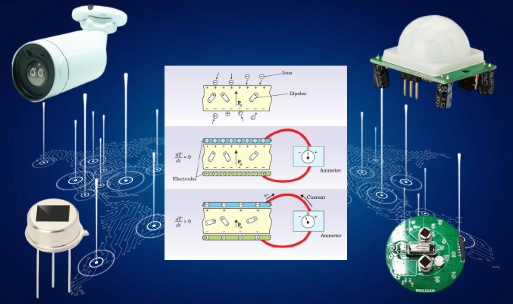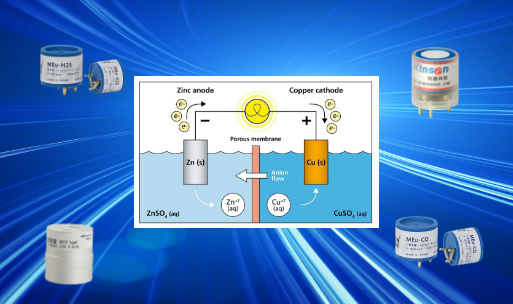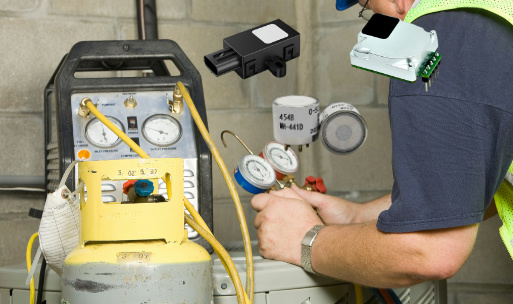What are the applications of refrigeration sensor?

Refrigeration and Air Conditioning Systems: Refrigerant sensors are used to detect leaks in refrigeration systems. They monitor the concentration changes of refrigerants, enabling timely detection of leaks and necessary repairs to ensure system functionality and energy efficiency.
Industrial Refrigeration: In industrial refrigeration processes, refrigerant sensors are employed to monitor and control the circulation and pressure of refrigerants. They help maintain the stability and efficiency of refrigeration systems.
Supermarkets and Commercial Refrigeration: Refrigerant sensors are utilized to monitor refrigerant leaks in commercial refrigeration equipment. Early detection and repair of leaks are crucial to prevent increased energy consumption, product damage, and environmental pollution.
Automotive Air Conditioning Systems: Refrigerant sensors are used in automotive air conditioning systems to monitor the pressure and concentration of refrigerants, ensuring proper system operation. They help maintain optimal indoor temperature and comfort.
Refrigeration Equipment Maintenance: Refrigerant sensors can be employed to monitor refrigerant circulation and performance in refrigeration equipment. By monitoring parameters such as pressure, temperature, and flow rate of refrigerants, equipment malfunctions and abnormalities can be promptly detected for maintenance and servicing.
Refrigerant leak detector:Refrigerant leak detector is a device used to detect refrigerant leaks in refrigeration systems. It can detect the concentration changes of refrigerants in the surrounding air or gas, determining the presence of leaks and helping to locate the source of the leak.
Winsen refrigeration sensor


For example:
Refrigerant sniffer
A refrigerant sniffer, also known as a refrigerant leak sniffer or refrigerant gas detector, is a handheld device used to detect and locate refrigerant leaks in various systems and equipment. It is specifically designed to identify the presence of refrigerant gases in the surrounding air.
The refrigerant sniffer operates based on the principle of gas sensing using a combination of technologies such as semiconductor sensors, heated diodes, or infrared sensors. These sensors are sensitive to the presence of refrigerant gases and can detect even very low concentrations of leaked refrigerants.
When using a refrigerant sniffer, the device is brought close to the suspected leak or potential leak points such as fittings, joints, valves, or connections. The sniffer's sensor detects the presence of refrigerant gases in the air, and the device provides visual or audible indications, such as an LED light or an alarm, to alert the user about the leak.
Refrigerant sniffers are commonly used by HVAC technicians, refrigeration professionals, and maintenance personnel to quickly and accurately locate refrigerant leaks in systems such as air conditioners, refrigerators, freezers, chillers, and other cooling equipment. They are portable, lightweight, and easy to use, allowing for efficient leak detection and subsequent repairs or maintenance actions to be taken.
Using a refrigerant sniffer helps prevent environmental damage, conserve energy, ensure system efficiency, and maintain compliance with relevant regulations and safety standards related to refrigerant leaks.
r32 leak detector
An R32 leak detector is a specialized device used specifically for detecting leaks of R32 refrigerant gas. R32 is a hydrofluorocarbon (HFC) refrigerant commonly used in air conditioning and heat pump systems. Due to its high global warming potential (GWP), it is essential to promptly detect and address any leaks to minimize environmental impact.
An R32 leak detector operates on similar principles as other refrigerant leak detectors but is specifically calibrated to detect R32 gas. It typically utilizes advanced sensor technology, such as semiconductor sensors or infrared sensors, to accurately sense and identify the presence of R32 refrigerant in the surrounding air.
When using an R32 leak detector, the device is brought near potential leak points or suspected areas of refrigerant leakage in R32 systems. The detector's sensor will detect the presence of R32 gas, and the device will provide visual or audible alerts, indicating the presence and concentration of the R32 refrigerant.
R32 leak detectors are designed to be portable, user-friendly, and sensitive to low concentrations of R32 gas. They help HVAC technicians and maintenance personnel quickly locate leaks, enabling timely repairs and preventing the release of refrigerant into the atmosphere.
Using an R32 leak detector aids in maintaining system efficiency, reducing environmental impact, and ensuring compliance with regulations and safety standards related to R32 refrigerant leaks. It is an essential tool for professionals working with R32-based air conditioning and heat pump systems.
Freon leak detectors
Freon leak detectors are devices specifically designed to detect leaks of Freon, which is a common name used for various chlorofluorocarbon (CFC) and hydrochlorofluorocarbon (HCFC) refrigerants. These refrigerants were widely used in older generations of air conditioning and refrigeration systems but are being phased out due to their harmful impact on the ozone layer.
Freon leak detectors operate based on similar principles as other refrigerant leak detectors. They utilize advanced freon gas sensor technology, such as heated diode sensors, infrared sensors, or semiconductor sensors, to detect the presence of Freon gases in the surrounding air.
When using a Freon leak detector, the device is typically brought near potential leak points or suspected areas where Freon may be escaping from the system. The detector's sensor will sense and respond to the presence of Freon gas, triggering visual or audible alerts to indicate the leak's presence and concentration.
Freon leak detectors are designed to be portable, easy to use, and sensitive to low concentrations of Freon gases. They help HVAC technicians, refrigeration professionals, and maintenance personnel quickly locate and identify Freon leaks, allowing for timely repairs or maintenance actions to prevent further refrigerant loss.
As the phase-out of Freon refrigerants continues, it is important to detect and address leaks promptly to prevent environmental damage and ensure compliance with regulations and safety standards. However, it's worth noting that the term "Freon" is often used colloquially to refer to various refrigerants, so it's important to select a leak detector that is suitable for the specific type of refrigerant being used in the system.
410a refrigerant leak detector
A 410A refrigerant leak detector is a specialized device used for detecting leaks of R-410A refrigerant gas. R-410A is a hydrofluorocarbon (HFC) refrigerant commonly used in modern air conditioning and heat pump systems as a replacement for older refrigerants with higher ozone depletion potential.
A 410A refrigerant leak detector operates on similar principles as other refrigerant leak detectors but is specifically calibrated to detect R-410A gas. It typically employs advanced sensor technology, such as heated diode sensors, infrared sensors, or semiconductor sensors, to accurately sense and identify the presence of R-410A refrigerant in the surrounding air.
When using a 410A leak detector, the device is brought near potential leak points or suspected areas of refrigerant leakage in R-410A systems. The detector's sensor will detect the presence of R-410A gas, and the device will provide visual or audible alerts, indicating the presence and concentration of the refrigerant.
410A leak detectors are designed to be portable, user-friendly, and sensitive to low concentrations of R-410A gas. They assist HVAC technicians and maintenance personnel in quickly locating leaks, facilitating prompt repairs and preventing refrigerant loss.
Using a 410A refrigerant leak detector helps maintain system efficiency, reduces environmental impact, and ensures compliance with regulations and safety standards related to R-410A refrigerant leaks. It is an essential tool for professionals working with R-410A-based air conditioning and heat pump systems.
For the latest refrigerant sensing solutions, please contact us for quick discuss sales@winsensor.com







